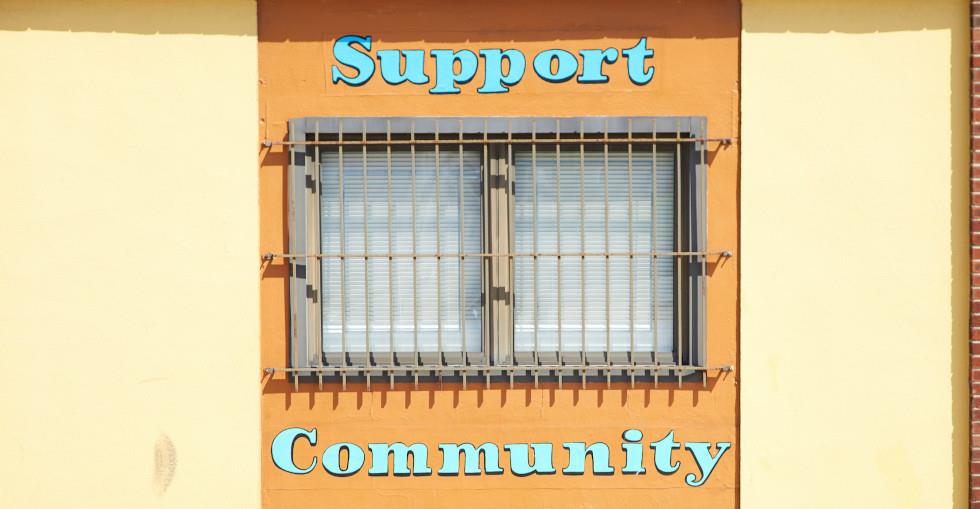Franchising is a tried and tested business formula - and it works.
The beauty of the franchise model is that it allows someone who may not have the funds or experience to start a business from scratch, to run their own commercial enterprise with the bolster of the brand, reputation and expertise of their franchisor.
Whilst fast-food joints such as McDonald’s and Burger King trail-blazed in the field back in the '60s and '70s, the franchise industry has fast developed to represent nearly all sectors of commercial business.
What’s exciting now, however, is franchising’s latest incarnation.
Social Franchising applies the basic franchise principle to organisations that work to improve conditions for those who suffer from a variety of disadvantages – and it’s enjoying some real success.
So how does Social Franchising work?
Although the basic model is the same, social franchising differs from commercial franchising in a fundamental way: while commercial franchising exists to maximise the profit of both franchisee and franchisor, the aim of the social franchise is to promote a social ideal, beyond the bank balance.
That’s not to say that profit isn’t a goal – it just runs parallel to the drive to make a difference.
The ESFN (European Social Franchising Network) suggests these drivers can be as diverse as ‘ …the employment of disabled people, the democratisation of the economy or tackling climate change. As such the social franchise has a social purpose and is often owned by its social franchise members but it is also a business that makes profits. Without these profits, it could not survive and grow and meet its social aims.’
Globally, in the world’s poorest countries, social franchising is emerging as a real and sustainable means to deliver invaluable healthcare, resources and education to communities trying to lift themselves out of lives plagued by disease and destitution.
An organic solution
Unlike standard charitable bodies, profit is a key aim of a social franchise.
A healthy cash-flow is vital in providing opportunities for franchisors and franchisees to set up solutions to a given problem in the area in which it exists. This allows those who live with the issue – be it lack of basic medicines or simply no internet connection – to have an active role in overcoming it.
Take Living Goods for example. Started by Chuck Slaughter (an established entrepreneur whose previous enterprises have included successful travel gear and clothing company, TravelSmith), this social franchise harnesses the power of local markets with an ‘avon-lady’ model. His team of native franchisees travel door-to-door in Kenyan and Ugandan villages selling health-foods, energy-efficient stoves, solar lights and basic medicines.
Aiming to not only improve the lives of its franchisees, Living Goods also seeks to improve the health and earning potential of its customers.
Agents are given working capital loans and they earn sales margins of 15-25%. The beauty of the scheme also lies in the fact that a franchisee’s local knowledge and drive to increase their own profits means that they will often take their products into areas that aid organisations have not yet reached.
Vision Spring – a social franchise, now operating in 20 countries worldwide, employs health workers allied with other organisations to sell reading glasses to many of the 703 million people in the developing world who need them.
Think about how a simple pair of specs could improve the employment potential of a visually impaired individual stuck in the never-ending cycle of poverty.
Taking the model even further, Vision Spring now have what they call a ‘hub-and-spoke’ strategy. In India and El Salvador, franchisees can associate themselves with an optical store in a large local town. When travelling out to rural communities, they not only sell glasses, eye-drops and treatments for common eye problems, but can refer more complex cases to the optical store.
The enterprise is not self-sustaining yet, but that aim is not far off. And, almost more importantly, Vision Spring has already achieved one of its key goals: to demonstrate to multinational companies that there are ways to sell to the world's poor that can combine both philanthropy and profit.
Another powerful advocate of social franchising is Marie Stopes International. They are a long-established, highly respected non-governmental organisation, dedicated to sexual and reproductive health worldwide.
There are Marie Stopes clinics situated all over the developing world, offering education, medicines and contraceptives to all, regardless of social and financial standing.
The organisation recently hosted a conference in Bhurban, Pakistan, with the aim of drafting a maternal health plan for the country, by using social franchising model.
Speakers present at the conference included private and government workers from all relevant sectors, such as population monitoring and health departments, as well as social franchising experts, and the end result was the ‘Bhurban Declaration’.
This document outlines the goals and commitments of all those involved and specifies the manner in which social franchising will help to provide safer pre-and post-natal services to some of the poorest women in the country.
Necessity is the mother of invention
There are numerous other social franchises operating in the developing world, offering anything from the use of mobile phones and internet connection to fortified dairy goods and the provision of testing and treatment for diseases such as malaria, TB and AIDS. There are even operations providing beekeeping supplies.
Depending on the type of franchise and product/service offered, business methods may be have to be adapted to suit the circumstances within a particular neighbourhood.
In many cases, the areas in which these enterprises have been set up are among the most deprived in existence and access to relevant and reliable training can be an extremely valuable way in which to ensure that a neighbourhood has the means to address its own difficulties.
Most social franchises depend on charitable donations to some extent, in order to stay in business, but as their practices become more sophisticated, many are close to self-sufficiency.
Domino effect
With outcomes such as better maternal health, enhanced nutrition and safer housing, social franchising is proving vital in improving living conditions in the poorest countries, as it allows philanthropic businesses to launch with far less access to capital than they would otherwise need.
Once basic conditions improve, there tends to be a general upturn in other aspects; for example, with better nutrition and basic medication comes improved health; with safer housing, less crime; with better communication, less ignorance and so on.
Such domino effects make the benefits of social franchising even further reaching than the individual franchises could possibly plan for.
As social franchising becomes more accessible to bodies with a social agenda at heart, the beauty of the concept – which once transformed the commercial business landscape – will blossom further still.
The truth is that this efficient model of business which originally spread fast-food chains across the globe is now being used to help some of the most deprived people on the planet to improve their lives and fortunes.
Ironic as that is, franchising is quite simply one of the best tools available to us today for effecting real social change.

